Today we're diving deep into how to get started in hotshot trucking. If you're looking for a way to enter the trucking industry with lower startup costs and more flexibility, hotshot trucking might be the perfect fit for you. We'll walk you through the key steps to launch your hotshot trucking business, from understanding what it is to finding your first loads.
WHY HOT SHOT TRUCKING?
A career in hot shot trucking could be ideal if you enjoy the freedom of the open road and the flexibility of setting your own schedule. Unlike traditional trucking jobs, hot shot trucking allows you to choose the loads you take and the routes you travel, offering more control over your work-life balance.
It’s a great fit for those who prefer shorter hauls or regional runs, rather than spending weeks away from home. If you’re someone who thrives in a fast-paced environment and likes the challenge of handling urgent, time-sensitive same day delivery jobs, hot shot trucking provides plenty of opportunities to put your skills to the test.
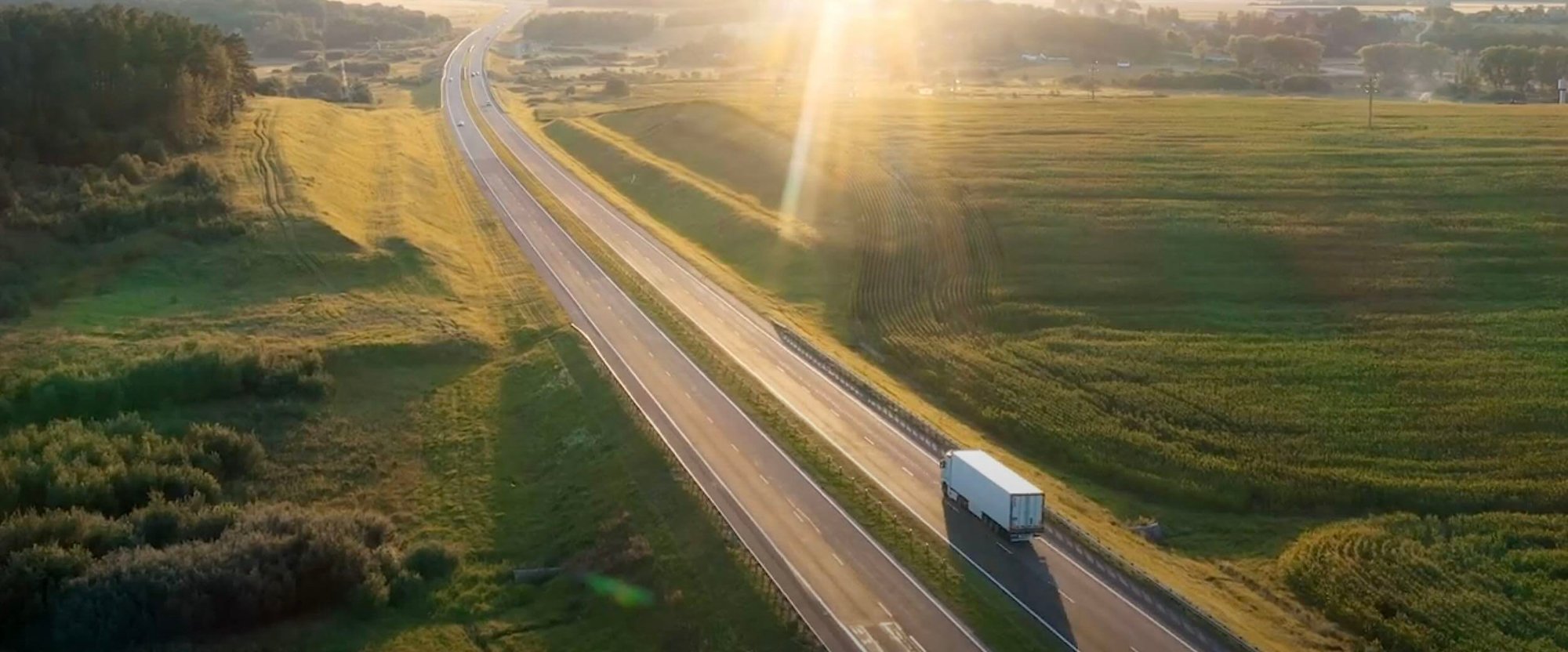
Requirements
AirFreight.com is a licensed freight broker with an intense focus on time-critical and premium freight shipments. We only allow experienced and dependable carriers to join our network, and we only allow carriers with excellent communication and impeccable honesty to remain in our network.
- Minimum 3 Years Active Continuous Authority (MC, DOT)
- Carrier Must Have Active Interstate Authority for Property
- FMSCA Rated A or B – Carrier Satisfactory Rating
- Cargo Insurance Minimum coverage $100,000
- General Liability Minimum coverage $1,000,000
- Box Truck, TT, Flatbed Carriers Must Have ELD
- Carrier Must NOT Have any Active Out of Service Orders
- Carrier Must Have a SAFER Operating Status of Active
- Carrier Must Accept Our Tracking Requests
- Carrier Must Be Available During Active Hot Shots
- Driver Must Have IOS or Android Cell Phone
- Absolutely No Unauthorized Brokering
- No Dispatching Services
- Must be Approved VIA Highway.com
Advantages of Hot Shot Trucking
Low Barrier to Entry
Flexibility
Truck and Trailers
Entrepreneurship
High Demand and Growth
Same Day Air Charter Lorem ipsum dolor sit
In the automotive industry it is estimated that one minute of stopped production costs an average of $22,000, with some estimates reaching as high as $50,000 per minute. With such staggeringly high costs at stake, keeping assembly lines operating smoothly is absolutely critical to a company’s bottom line. With many manufacturers building to only a just-in-time production rates, any disruption threatens parts and vehicle inventories. Enter same day air charter service from SameDayAir.com.
When supply chain crises arise, our same day air charters and onboard couriers can rapidly deliver parts to get your production line moving again – on time. Not only do we air charter time sensitive parts, but we can also fly fully assembled vehicles – with sales teams and key personnel - to product launches, rollouts, and press events. With immediate access to air charter aircraft of all types, you’ll hit the ground running.

Step 1: Assess Your Finances
The first and most crucial step is to evaluate your financial situation. Starting a hotshot trucking business requires capital, and you need to ensure you have enough to cover both startup costs and operating expenses until your business becomes profitable. Here's a breakdown of potential costs:
- Truck and trailer purchase or lease
- Insurance premiums
- Licensing and permit fees
- Fuel and maintenance costs
- Business registration fees
- Equipment and supplies
- Working capital to get you through the first several months
Consider creating a detailed budget that accounts for these initial costs. If you find that your savings won’t fully cover the investment, there are options to explore, such as small business loans, personal loans, or even leasing equipment rather than buying it outright. Look into financing options from lenders who specialize in trucking or transportation industries, as they often have programs designed for new hot shot trucking businesses.

Step 2: Choose Your Equipment
Selecting the right equipment is crucial for your success. Let's break this down into two categories: Trucks: You'll need a medium-duty truck, typically falling into Class 3-5. Popular options include:
- Ford F-350 or F-450
- Chevrolet Silverado 3500HD or 4500HD
- RAM 3500 or 4500
When choosing a truck, consider factors like towing capacity, fuel efficiency, and reliability. Okay let’s talk
- Trailers: Common trailer types for hotshot trucking include:
- Gooseneck trailers: Offer better stability and higher weight capacity
- Flatbed trailers: Versatile for various types of cargo
- Dovetail trailers: Good for loading vehicles or equipment with wheels
Consider the types of loads you plan to haul when selecting your trailer.
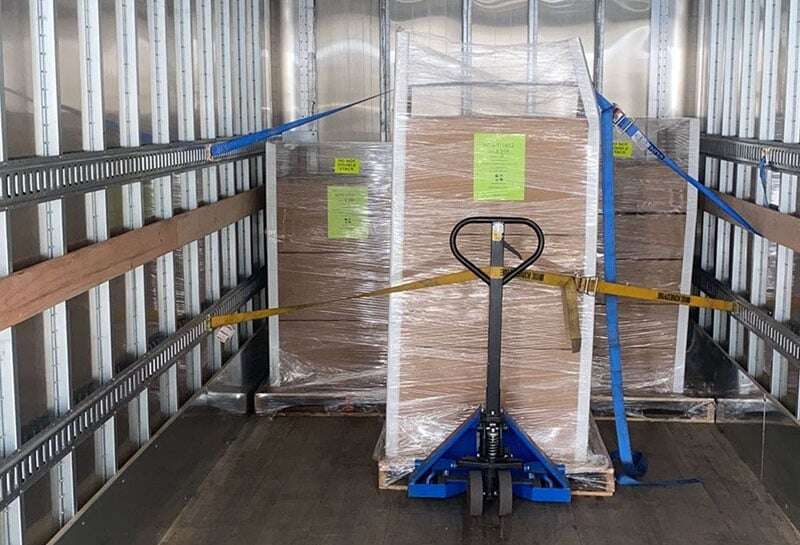
Step 3: Get Your Licenses and Permits
Navigating the regulatory landscape is a crucial part of starting your hotshot trucking business. While requirements can vary depending on your location and the types of loads you'll be hauling, here are the general licenses and permits you'll need:
- A valid driver's license: Depending on the weight of your truck and trailer combination, you may need a Commercial Driver's License (CDL)
- DOT physical and medical card: This certifies you're physically fit to operate a commercial vehicle
- A valid driver's license: Depending on the weight of your truck and trailer combination, you may need a Commercial Driver's License (CDL)
- USDOT number: Required for interstate commerce and for vehicles over certain weight limits
- Motor Carrier (MC) number: Needed for interstate operations
- International Registration Plan (IRP) tag: For operating across state lines
- International Fuel Tax Agreement (IFTA) decal: For fuel tax reporting when operating in multiple jurisdictions
Remember, requirements can vary by state, so be sure to check with your local Department of Transportation for specific regulations.

Step 4: Set Up Your Business
Establishing your business properly is key to long-term success. Here are the steps:
- Choose a business structure: Most hotshot truckers opt for a Limited Liability Company (LLC) for its flexibility and personal asset protection
- Register your business: File the necessary paperwork with your state
- Obtain an EIN: This Employer Identification Number is issued by the IRS and acts as a tax ID for your business
- Open a business bank account: Keep your personal and business finances separate
- Set up an accounting system: Consider using software like QuickBooks to track income and expenses
Open a separate business bank account to manage finances and keep business expenses separate from personal ones. Consider working with an accountant or financial advisor to help with bookkeeping, tax planning, and compliance. Proper financial management will also make it easier to track profits and business growth.

Step 5: Get Insured
Proper insurance coverage is crucial in the trucking industry. You'll need:
- Commercial auto liability: Covers damages you may cause to others
- Cargo insurance: Protects the freight you're hauling
- Physical damage coverage: Protects your truck and trailer
- Bobtail insurance: Covers you when driving without a trailer
- Occupational accident insurance: Provides coverage similar to workers' compensation
Shop around and compare quotes from different providers specializing in commercial truck insurance.
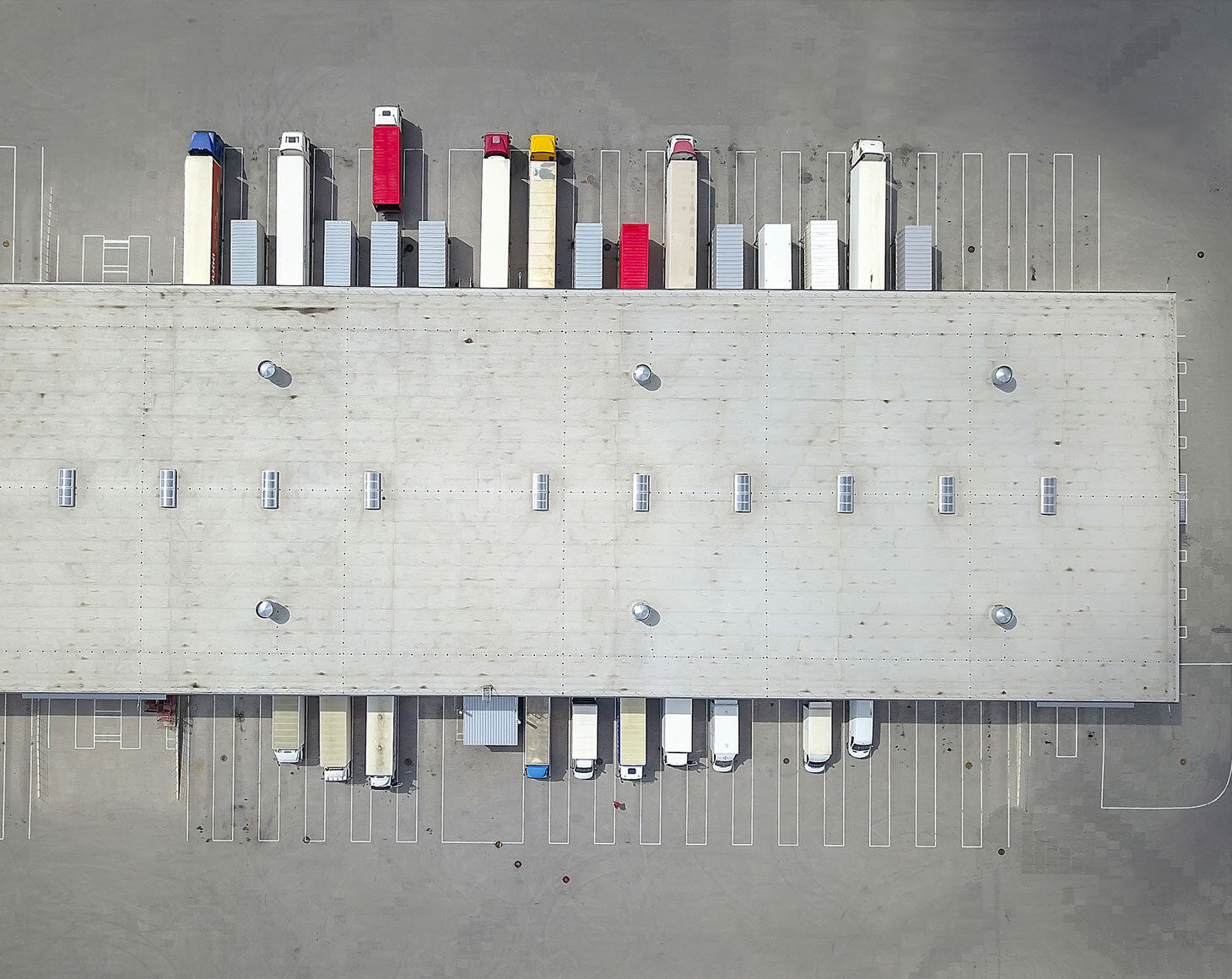
Step 6: Invest in Essential Equipment
Beyond your truck and trailer, you'll need various equipment to operate safely and efficiently:
- Securement gear: Straps, chains, binders, and tarps for securing different types of loads
- Safety equipment: Fire extinguisher, reflective triangles, first aid kit
- Electronic Logging Device (ELD): Required for most commercial drivers to track hours of service
- GPS navigation system: For efficient route planning
- Smartphone and laptop: For communication and business management
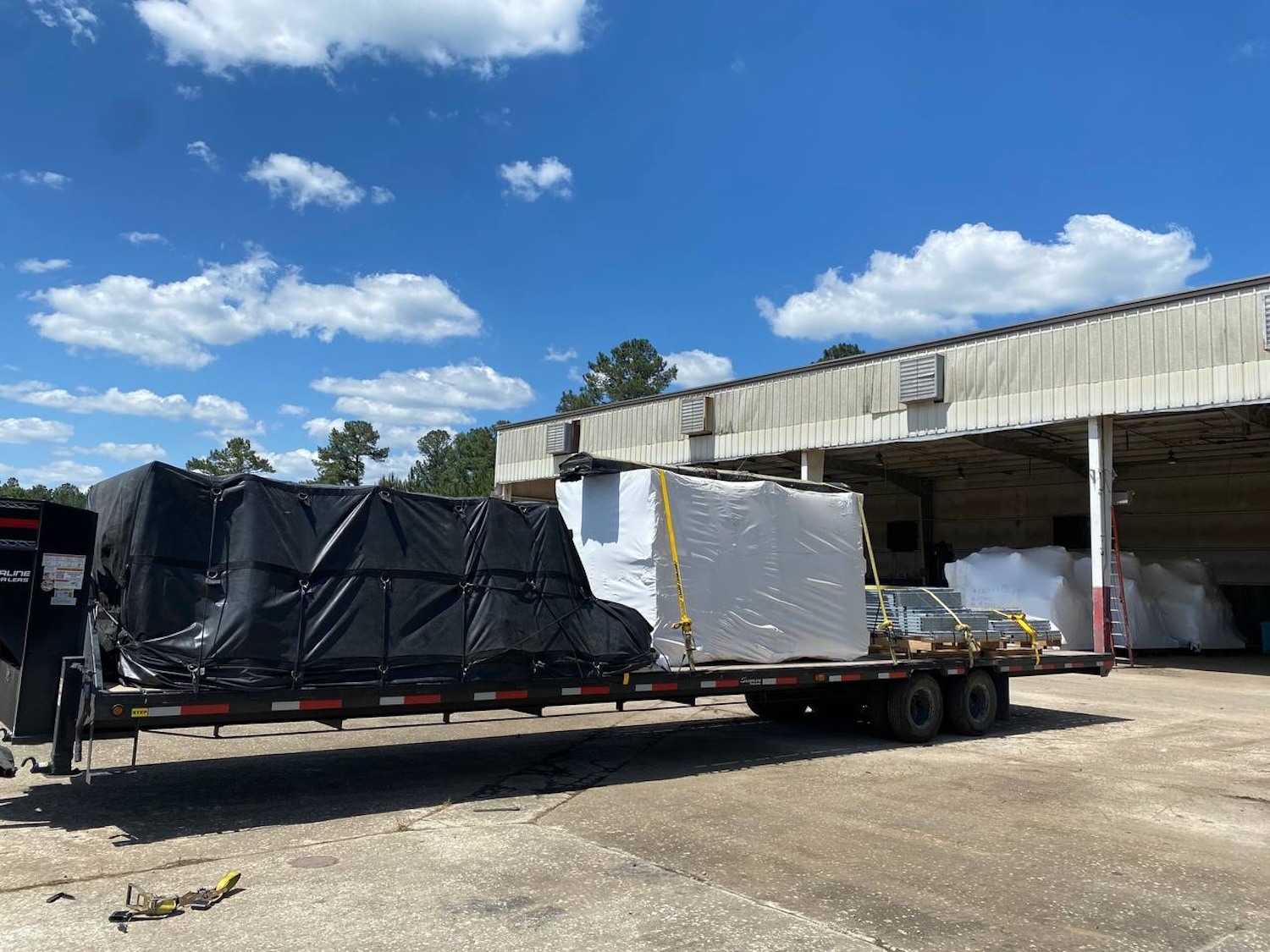
Step 7: Understand Hours of Service Regulations
Familiarize yourself with the FMCSA's hours of service regulations. These rules limit how long you can drive and when you must take breaks. Compliance is crucial for safety and avoiding penalties.
- Daily Driving Limit: For property-carrying drivers, the FMCSA mandates a maximum of 11 hours of driving after 10 consecutive hours off duty.
- 14-Hour “Driving Window: Once you start your workday (after a break of at least 10 consecutive hours), you have a 14-hour window in which you can drive up to the 11-hour limit. After this window, you must be off duty for another 10 hours before driving again.
- Rest Break Requirement: Within your 14-hour window, you must take a 30-minute break if you’ve driven for eight cumulative hours without at least a 30-minute interruption.
- 60/70-Hour Duty Limit: Over a period of seven or eight consecutive days, drivers can’t exceed 60 hours of duty within seven days or 70 hours within eight days.
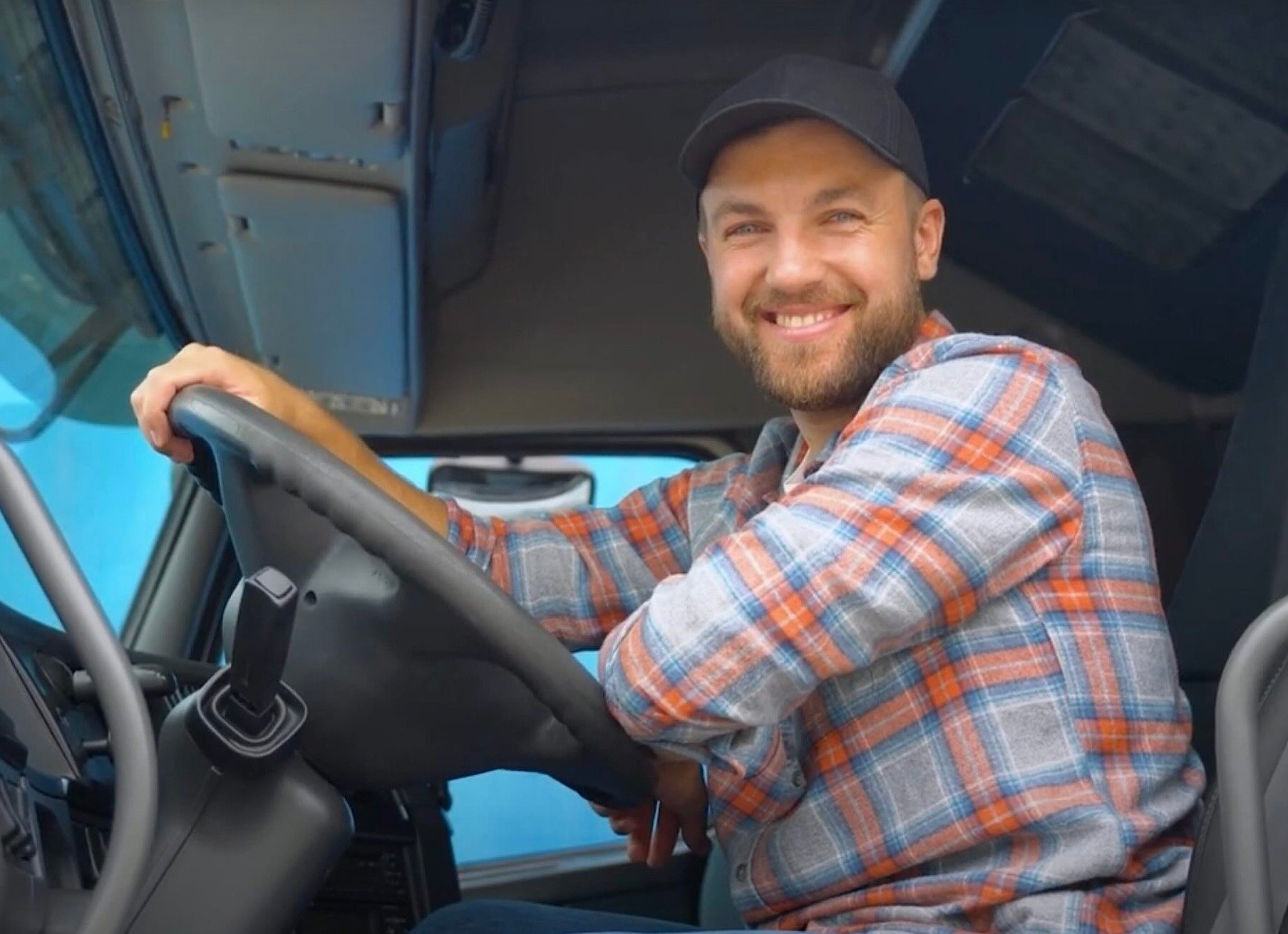
Step 8: Find Loads
Now that you're set up, it's time to find freight to haul. Here are some strategies:
- Use Load Boards: Websites like Truckstop.com, DAT, and uShip frequently post hot shot loads that can help you get your first jobs. Many of these boards allow you to filter for hot shot loads specifically, giving you a list of jobs that fit your truck and trailer setup.
- Build Relationships with Brokers: Freight brokers can be a valuable source of work, providing you with steady job opportunities. Look for brokers who specialize in hot shot freight or industries like construction, oil and gas, and manufacturing.
- Network with Local Businesses: Many small businesses, particularly those in construction, agriculture, and manufacturing, rely on hot shot trucking for last-minute or urgent deliveries.
- Consider Leasing On with a Company: If you’re new to the industry, leasing on with an established company can provide a reliable source of work while you build your own client base.
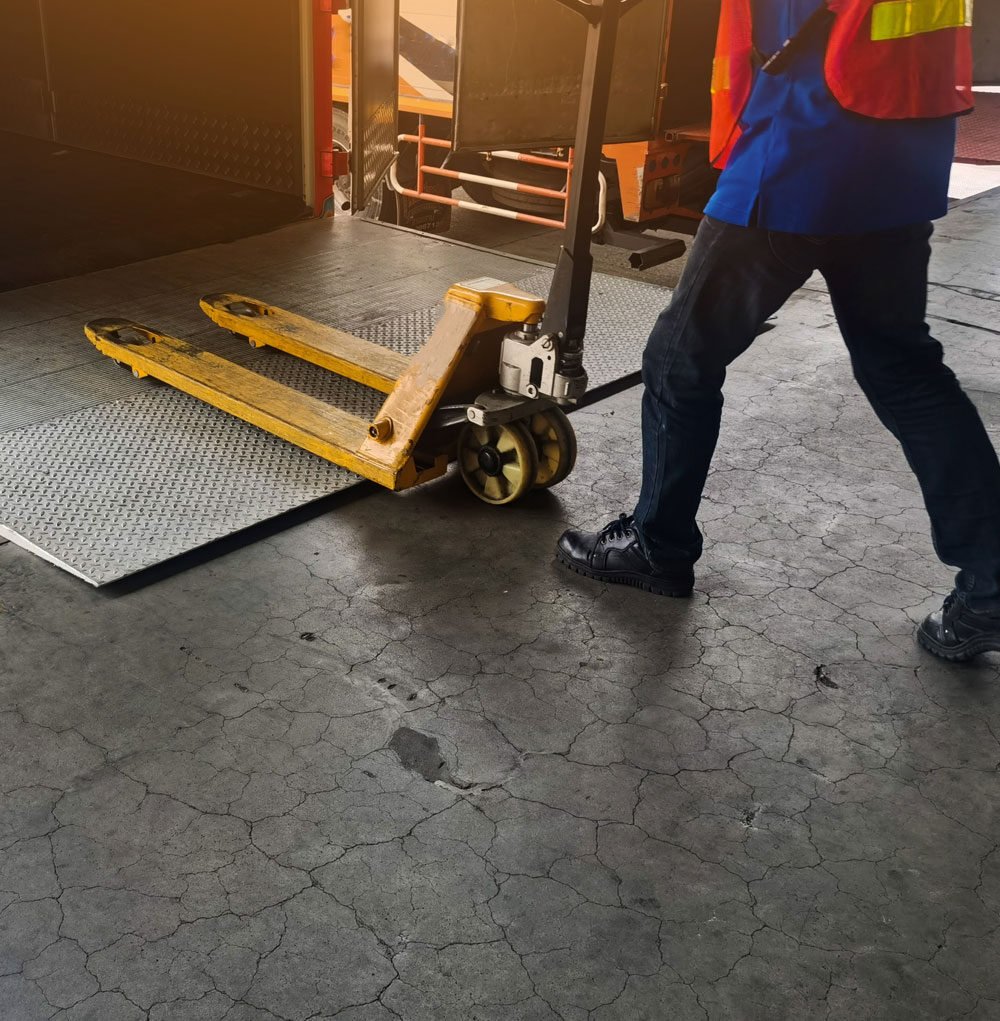
Hot shot trucking plays a vital role across a range of industries, from construction and manufacturing to oil and gas, aviation, and telecommunications.
- Automotive
- Aerospace
- Construction
- Machinery
- Mining and Metals
- Manufacturing
- Oil and Gas
- Telecommunications
Automotive
Hot shot trucking has become essential in the automotive industry, particularly as manufacturers and suppliers face increasing demand for rapid delivery of critical components. With the rise of advanced technologies in vehicles, such as sensors, cameras, and microchips, the need for fast and flexible logistics has grown. Hot shot trucking provides a solution by ensuring these parts reach production lines quickly, minimizing delays and keeping assembly processes on schedule.
Aviation & Aerospace
Hot shot trucking plays a critical role in the aviation and aerospace industry, where precision and speed are paramount. Aircraft manufacturers, maintenance providers, and aerospace companies rely on the rapid transportation of vital components, such as jet engines, avionics, and structural parts, to avoid costly delays and downtime. Hot shot trucking ensures that these time-sensitive shipments are delivered promptly, whether to manufacturing facilities or maintenance locations.
Construction
Hot shot trucking is a crucial asset in the construction industry, where timelines are tight and delays can be costly. Construction projects often require the rapid delivery of equipment, tools, and materials to job sites, sometimes in remote or difficult-to-access areas. Hot shot trucking offers a flexible, fast solution for transporting everything from machinery and building materials to specialized components, ensuring that work progresses without interruptions.
Machinery
Hot shot trucking is an essential service for the machinery industry, where the timely delivery of large, heavy, and specialized equipment is critical to maintaining production schedules and minimizing downtime. Manufacturing plants, industrial operations, and construction sites often rely on hot shot trucking to transport machinery components, replacement parts, and fully assembled equipment on short notice. Whether it’s getting a vital machine part to a production facility or delivering an entire piece of equipment to a job site, hot shot trucking ensures that these urgent shipments arrive quickly and safely.
Mining and Metals
Hot shot trucking is a crucial service for the mining and metals industry, where operations often take place in remote locations with limited infrastructure. The industry depends on the rapid and reliable transport of heavy equipment, specialized machinery, and essential materials to keep mines running smoothly and efficiently. Hot shot trucking provides the flexibility to deliver time-sensitive shipments such as replacement parts for machinery, raw materials, or even finished metal products to and from mining sites.
Manufacturing
Hot shot trucking is a vital resource for the manufacturing industry, where maintaining smooth and continuous production processes is essential to meeting tight deadlines and fulfilling customer orders. Manufacturers often face unexpected supply chain disruptions, such as delays in receiving critical components or equipment breakdowns that halt production. Hot shot trucking provides a fast and reliable solution for delivering urgent shipments of parts, raw materials, and machinery, ensuring minimal downtime.
Oil and Gas
Hot shot trucking plays an indispensable role in the oil and gas industry, where operational efficiency and timely deliveries are critical. With drilling rigs and production sites often located in remote and hard-to-reach areas, the industry relies on fast and flexible transportation to deliver essential equipment, tools, and materials. Hot shot trucking ensures that urgent shipments, such as replacement parts for pumps, drilling machinery, or vital supplies, reach their destination quickly, minimizing downtime and preventing costly disruptions.
Telecommunications
Hot shot trucking is a critical service in the telecommunications industry, where the rapid deployment of equipment and infrastructure is essential to maintain and expand networks. With the increasing demand for high-speed connectivity and the constant need for repairs or upgrades to towers, cables, and other communication systems, telecom companies rely on hot shot trucking for the swift transport of vital components.

Frequently Asked Questions
What truck is the best for hot shot trucking?
The most popular trucks for hot shot trucking are ¾-ton or one-ton pickups, such as the Ford F-250/F-350, Chevrolet Silverado 2500/3500, and Ram 2500/3500. These trucks are commonly paired with gooseneck or flatbed trailers to enhance versatility and payload capacity.
These truck and trailer combinations provide the strength and flexibility needed to handle a range of loads, from machinery and building materials to smaller, time-sensitive shipments. Gooseneck trailers are especially popular in hot shot trucking due to their stability, maneuverability, and ability to support heavier loads compared to standard hitch trailers. Flatbed trailers, on the other hand, offer easy loading and unloading for various types of freight, making them ideal for construction materials, large equipment, and other oversized items.
When selecting a truck and trailer setup, it’s also essential to consider the Gross Vehicle Weight Rating (GVWR) and payload capacity to ensure compliance with Department of Transportation (DOT) regulations. Many hot shot truckers opt for trucks with dual rear wheels (“dually” models) for added stability, especially when hauling heavy loads over long distances.
What size of vehicle is needed for hot shot trucking?
Hot shot trucking typically utilizes medium-duty trucks ranging from ¾-ton to 1.5-ton capacity, equipped with versatile hitch options such as gooseneck and fifth-wheel hitches. These trucks often pair with load-balancing trailers, allowing them to transport a wide variety of equipment efficiently and safely.
This setup enables hot shot truckers to handle loads of different sizes and weights, making it ideal for industries with time-sensitive delivery needs, such as construction, agriculture, and oil and gas. Load-balancing trailers help evenly distribute weight across the axles, improving stability and fuel efficiency, especially on long hauls. Additionally, many drivers customize their trucks with heavy-duty towing packages, upgraded suspensions, and advanced braking systems to safely manage heavier loads while complying with DOT regulations.
How do hot shot drivers get loads?
Load boards, or freight boards, are online platforms where brokers and shippers post available jobs, allowing drivers to find hot shot loads. These boards typically enable drivers to filter and organize loads by key factors such as weight class, payout, and delivery requirements, helping them select jobs that best match their vehicle capacity and earning goals.
By using load boards, drivers can streamline the process of finding suitable loads, minimizing idle time between jobs and maximizing their profitability. Many load boards also provide additional tools, like real-time tracking, estimated fuel costs, and route optimization features, which further support drivers in managing their schedules efficiently.
Some of the most popular load boards, like Truckstop.com and DAT, offer specialized filters for hot shot loads and allow drivers to set alerts for new listings that match their criteria. Accessing these boards through mobile apps also makes it easy for drivers to stay updated on available loads while on the road, ensuring they never miss valuable opportunities. For hot shot truckers, load boards are an essential resource for building a steady workflow and expanding their client base.
What size trailer is best for hot shot trucking?
A non-CDL hot shot driver should generally opt for a trailer between 30 and 40 feet in length. This size helps ensure that the combined weight of the truck, trailer, and cargo remains below the 26,000-pound limit—the maximum weight allowed before a CDL becomes necessary.
Choosing a trailer within this size range allows non-CDL drivers to take on a variety of loads while staying compliant with DOT regulations. Additionally, a 30-40 foot trailer provides ample space for most hot shot freight, from construction materials to smaller machinery, without exceeding weight restrictions. Many non-CDL hot shot drivers also consider lightweight trailer materials, like aluminum, to further reduce total weight and maximize cargo capacity.
Staying under the 26,000-pound threshold not only keeps operating requirements simple but also allows drivers to avoid certain fees, permits, and compliance checks that come with heavier loads. This approach is ideal for those looking to maintain lower operating costs and increased flexibility as they build experience in hot shot trucking.
Which hot shot loads pay the best?
The highest-paying hotshot loads typically include:
- Time-Sensitive Freight: Urgent deliveries, such as critical parts for manufacturing or repair operations, often pay more as clients need them quickly to avoid costly downtime. These loads are ideal for hot shot trucking, where flexibility and rapid response are valued.
- Construction Equipment: Heavy machinery like excavators and skid steers often pays well due to sizes and weights.
- Oversized Loads: Any cargo that requires special permits or escorts usually commands a premium.
- Oil and Gas Equipment: Transporting equipment or parts to remote oil fields, such as pipes, valves, and drilling machinery, can pay well because of the challenging locations and the industry’s high demand for reliable, quick deliveries.
- High-Value Items:Loads with valuable equipment or materials—such as specialized electronics or medical devices—often come with increased pay due to the need for extra care and secure handling during transport
Focusing on these types of loads can increase profitability for hot shot drivers, especially when paired with the flexibility to take on last-minute or hard-to-access jobs that many standard carriers may not offer.
Related Blog Posts
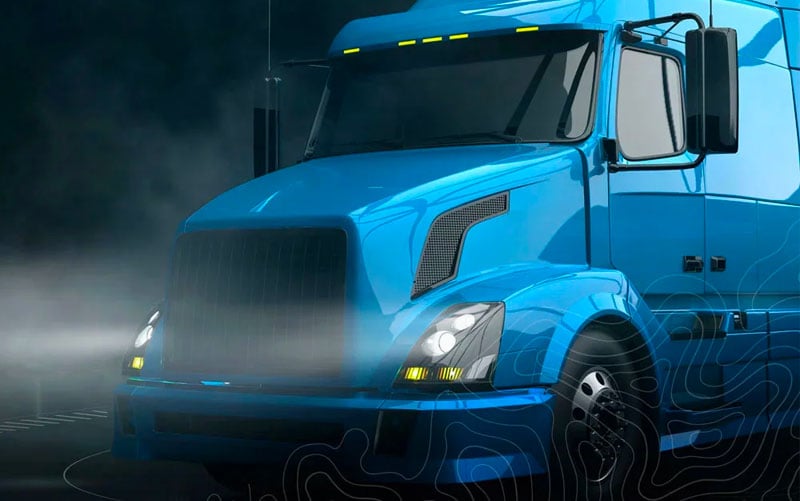
What is Hot Shot Trucking? aka HotShot Trucking
Modern business is all about strict timelines. Whether your field is manufacturing, extraction, retail, or research and development, your operations are bound to rely on a variety of activities that operate in tandem. The most minor of supply shortages can throw these activities off, potentially costing you thousands of dollars just for a few hours' delay. Success thus hinges on your ability to right the ship as quickly as possible after a...
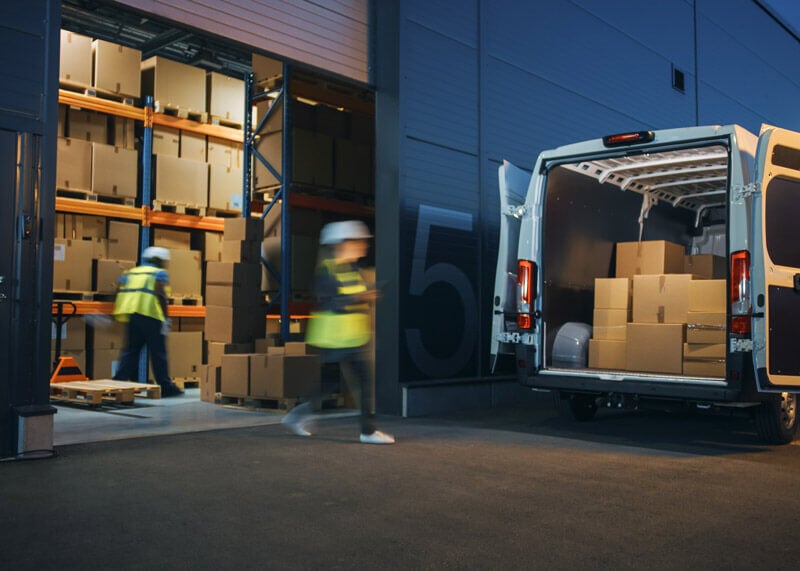
The Advantages of Hot Shot Trucking for Small Businesses
In the world of logistics, small businesses often face unique challenges when it comes to shipping their products efficiently and cost-effectively. This is where hot shot trucking can be a game-changer. Hot shot trucking offers a range of advantages that can significantly benefit small businesses, enabling them to compete in the marketplace and meet customer demands. In this blog post, we will explore the advantages of hot shot trucking for...
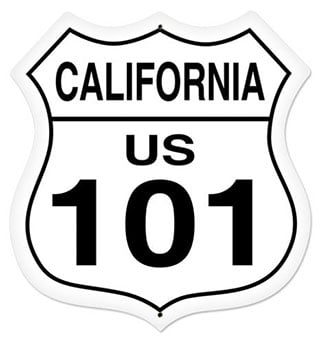
How Highway Closure Impacts Hot Shot Trucking California
Natural disasters can disrupt any industry, but their impact is particularly serious for logistics companies. The recent mudslides in California are a powerful case in point. By blocking Highway 101, one of the Golden State’s most important roadways, this environmental crisis has diverted trucks from their usual routes. This has significantly increased the cost and difficulty of completing hot shot freight deliveries, hampering the economy of...

Louisiana's Transportation Plan To Benefit Hot Shot Trucking Industry
After years of discussion and debate from countless stakeholders, Louisiana is starting a new infrastructure project. Governor John Bel Edwards unveiled a $600 million plan to improve the state’s highways. Focusing on widening Interstate 10, this plan will be a boon to Hot Shot Trucking and other transportation companies that traverse the state. Governor Edwards announced the plan on Friday, May 13th, claiming that it was “of the utmost...
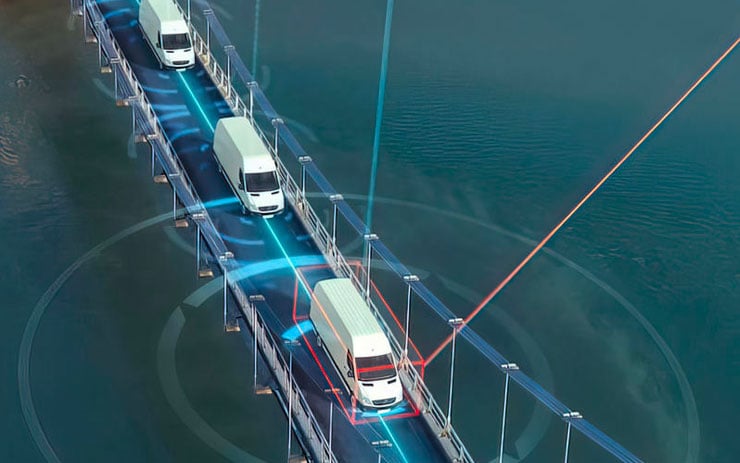
Essential Tips for Successful Hot Shot Trucking
Running a successful hot shot trucking business requires a combination of effective strategies, attention to detail, and a commitment to customer satisfaction. Whether you're a new entrant or an experienced hot shot trucker, adopting essential tips can help you navigate the industry and increase your chances of success. In this blog post, we will provide practical advice and strategies for running a thriving hot shot trucking business, covering...

Texas Trucking Company
Hot shot trucking companies in Texas specialize in hauling smaller, time-sensitive loads—often for the energy sector, where timing is crucial. From providing hot shot delivery services to offering competitive freight quotes, these companies are integral to the world of Texas logistics. In addition to their speed and accessibility, hotshot trucking companies in Texas offer a cost-effective alternative to larger freight services for small to...

The History of Hot Shot Trucking in North America
Businesses facing shipping emergencies have long counted on hot shot trucking to fill the gaps. But the hotshot field didn’t just pop into existence as it is today. Rather, this bastion of emergency shipping developed slowly over time, emerging and expanding in tandem with the rest of the trucking industry. From the earliest days of pre-automotive transport to the modern era of brokers, reshoring, and JIT production systems, hot shot providers...
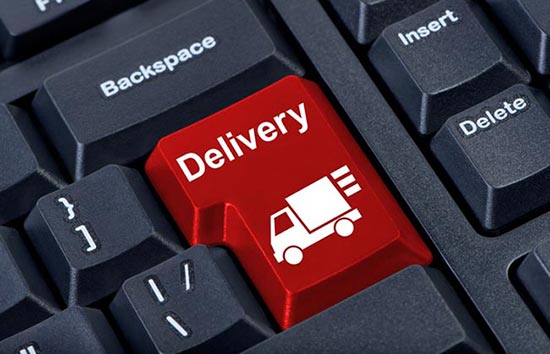
Truckload Demand Remains Higher than this Time Last Year
Based on the latest reports on durable goods manufacturers’ shipments, orders and inventories, freight volume has yet to decline. The most recent numbers from the US Census Bureau show that orders for manufactured durable goods increased in May by 0.7% to $267.2 billion. This follows increases for seven of the past eight months. This May, shipments of manufactured durable goods increased by $3.6 billion or 1.3%, followed by a 0.3 % rise in...
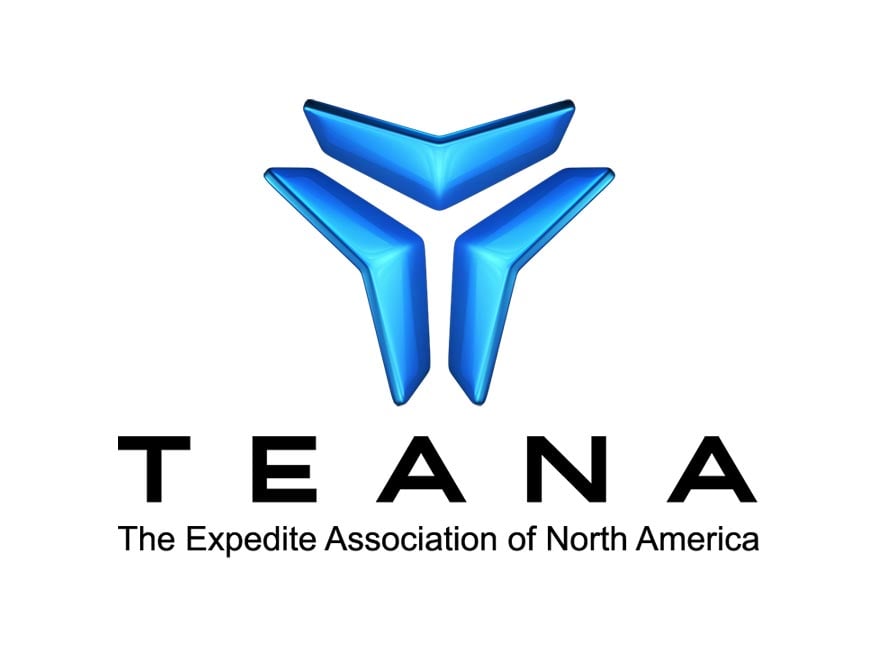
Regulatory and Legislative Update - February 2023
Contents Regulation and Enforcement FMCSA proposes to revamp SMS, rejects IRT as ‘overly complex’ FMC judge rules in favor of motor carriers on intermodal chassis choice Further input sought on regulating autonomous trucking operations Three ELDs are removed from FMCSA’s list of registered devices CVSA International Roadcheck scheduled for May 16-18 FMCSA rejects driver’s requested exemption from HOS, ELD requirements Multiple carriers seek...

House Bill 7095 / Section 4202
House panel to vote on bill with measures on CSA, SFD, HOS The Democratic leadership of the House Transportation & Infrastructure Committee on June 4 introduced legislation (H.R. 7095) to reauthorize transportation programs following the expiration of the FAST Act on September 30. Title IV of the bill addresses motor carrier safety and includes several significant provisions related to Federal Motor Carrier Safety Administration (FMCSA)...

Regulatory and Legislative Update - July 2023
Contents Regulation and Enforcement FMCSA close to seeking input on safety fitness determination regulations FMCSA takes steps to address counteract fraudulent carriers Final guidance issued on definitions of brokers and bona fide agents Truck Leasing Task Force holds inaugural session FMCSA plans to address mandate concerning carriers’ knowledge of regulations NHTSA, FMCSA plan to mandate automatic braking systems on new trucks CARB, truck...

Regulatory and Legislative Update - September 2021
Contents Regulation and Enforcement FMCSA seeks feedback on Part 379 records retention requirements FMCSA extends COVID enforcement relief, seeks carrier reports on its use CVSA policy adopted as certification standards for driver/vehicle inspections Comments due September 23 on MRB report regarding alternative vision standard FMCSA plans to renew consumer complaint database FMCSA seeks approval for information collection related to waivers and...
WHAT IS HOT SHOT TRUCKING? AKA HOTSHOT TRUCKING
Modern business is all about strict timelines. Whether your field is manufacturing, extraction, retail, or research and development, your operations are bound to rely on activities that operate in tandem. The most minor of supply shortages can throw these activities off, potentially costing you thousands of dollars just for a few hours' delay. Success thus hinges on your ability to right the ship as quickly as possible after a supply shortage arises.
Industries We Serve
Modern day hot shot trucking provides the speed and exclusivity you need to meet the most demanding and time-sensitive shipping requirements. We use every resource, avenue, and channel available to ship your freight by ground or air. Designed specifically to address supply and distribution problems that arise without warning, hotshot trucking tactics involve coordinating a network of carriers in a variety of locations. By calling on the vehicles closest to your supply or distribution points, hotshot brokers can fill any sudden gaps in your supply network almost as soon as they happen. This minimizes the disruption to your business and allows you to quickly return to ordinary operations, weathering the storm without skipping a beat.
Automotive
The automotive supply chain already has significant challenges. Don’t let malfunctioning equipment stop the production line. Step on the gas with HotShotTrucking.com’s suite of services that will get you back in the fast lane. With HotShotTrucking.com, companies are devising shipping strategies to swiftly deliver critical parts and equipment — whether it's ground expedite service with sprinter vans, box trucks and 53-foot tractor trailers or air freight and air cargo.
Aviation & Aerospace
Every moment a commercial airliner sits on the ground, it costs an airline money. Expedited freight services by HotShotTrucking.com can get you back in the air with prompt delivery of parts and equipment throughout North America. We are equipped with the expertise to navigate the complexities of shipping jet engines and other types of loads, and our network of hot shot drivers has extensive experience transporting aviation assets.
Construction
One shipping delay can snowball and cause delays throughout your entire project. You need an experienced 3PL provider who understands the construction industry and has the logistical reach to deliver your freight on time, anywhere. That 3PL partner is HotShotTrucking.com. Whether in the air or on the ground via truck and trailer, we can connect companies to expedited freight services for the prompt delivery of parts and equipment throughout North America.
Mining & Metals
From cranes to chemicals to excavators to conveyor belts, HotShotTrucking.com has the experience and industry know-how required for shipping sensitive, oversized, and hazardous equipment. Third-party hot shot trucking and logistics providers such as HotShotTrucking.com specialize in devising and implementing innovative shipping solutions, ensuring mines can swiftly return to operation. We’ll pick up your shipment, deliver it to the airport and receive it at the other end – providing hand-carried service as necessary or required.
Manufacturing
Every moment a manufacturing facility or factory sits idle costs a company money because of the high costs involved. With many manufacturers building to only just-in-time production rates, any disruption threatens parts and vehicle inventories. This is where the speed and expertise of freight services from HotShotTrucking.com can make a difference throughout the entire manufacturing supply chain. We do all the logistical legwork to find the optimal solution for your job, whether it's an exclusive air charter or expedited ground shipping.
Telecommunications
From servers to cell towers, information, voice, and data must flow to keep businesses, production, and the public online and connected. When equipment goes dark, depend on HotShotTrucking.com to get your systems flashing green again. This is where the speed and experience of trucking and freight services from HotShotTrucking.com can help. Our hot shot truck network excels at the prompt delivery of parts and equipment throughout North America.
Oil & Gas
The oil and gas industry faces challenging conditions in offshore and onshore oil rigs, often in remote locations with limited infrastructure. Don’t let oil pumps or pipelines sit idle waiting for equipment. By having the right plans, parts, people, and logistics partner like HotShotTrucking.com, you can effectively mitigate plant or pump downtime, unscheduled disruptions, and equipment failures.
Cost of Urgent Shipping
Which of our specialized shipping services best fits your needs?
Blog and Resource Center
How AirFreight.com Solved a PGA Tour Shipping Emergency
Learn how AirFreight.com located a lost shipment and helped save the PGA Golf Tour.
How AirFreight.com Saved The Farm By Solving A Major Shipping Delay
Learn how we saved a Montana-based artisanal farm thousands of dollars by expediting a shipment of perishable goods.
Expedited Shipping Vendor Comparison
We’ve done the research for you. This vendor comparison sheet breaks down how AirFreight.com stacks up against the competition.

talk to an expeditor now
Get a Quote in Minutes for Your Time-Critical Freight Needs
GET A QUOTE
